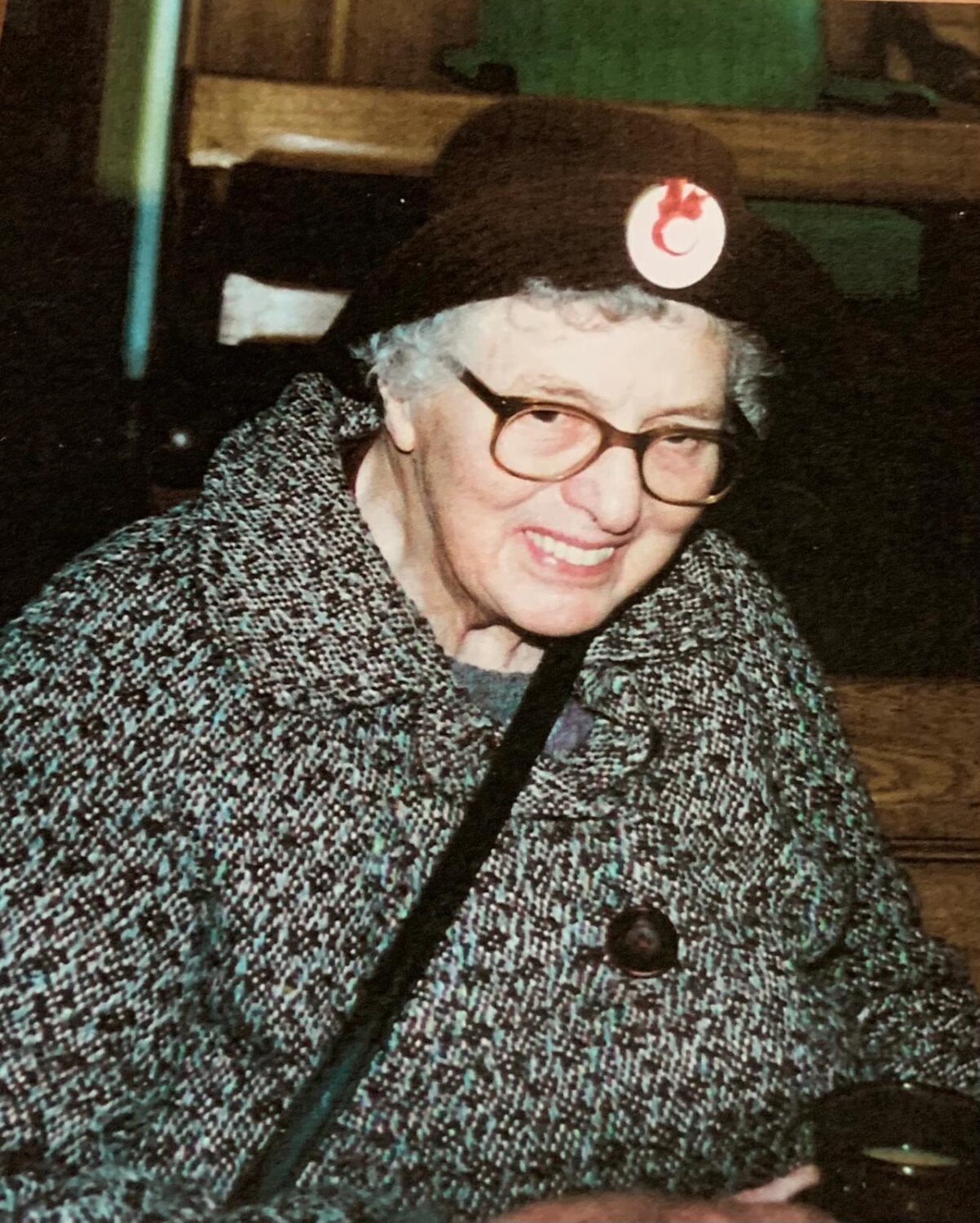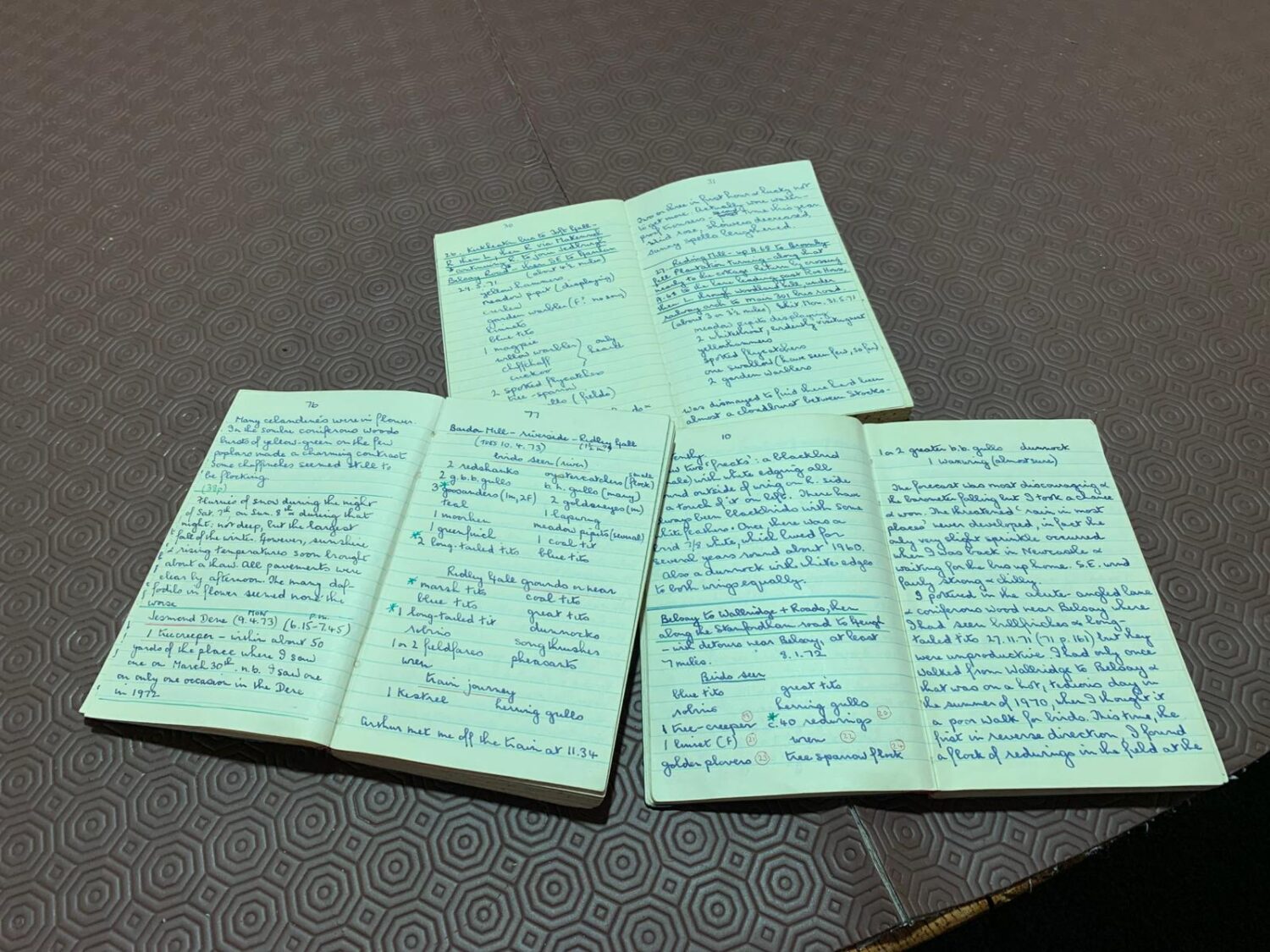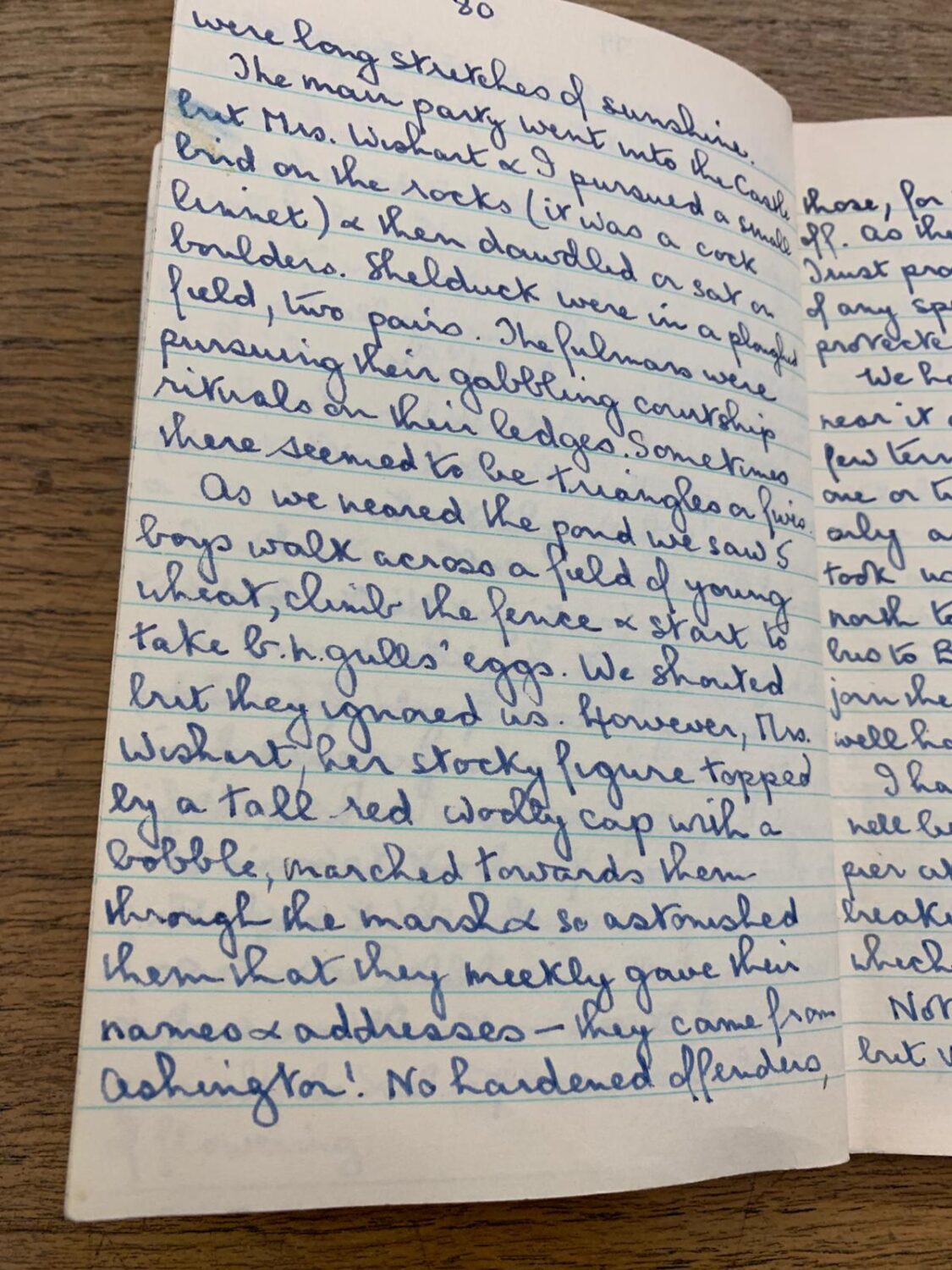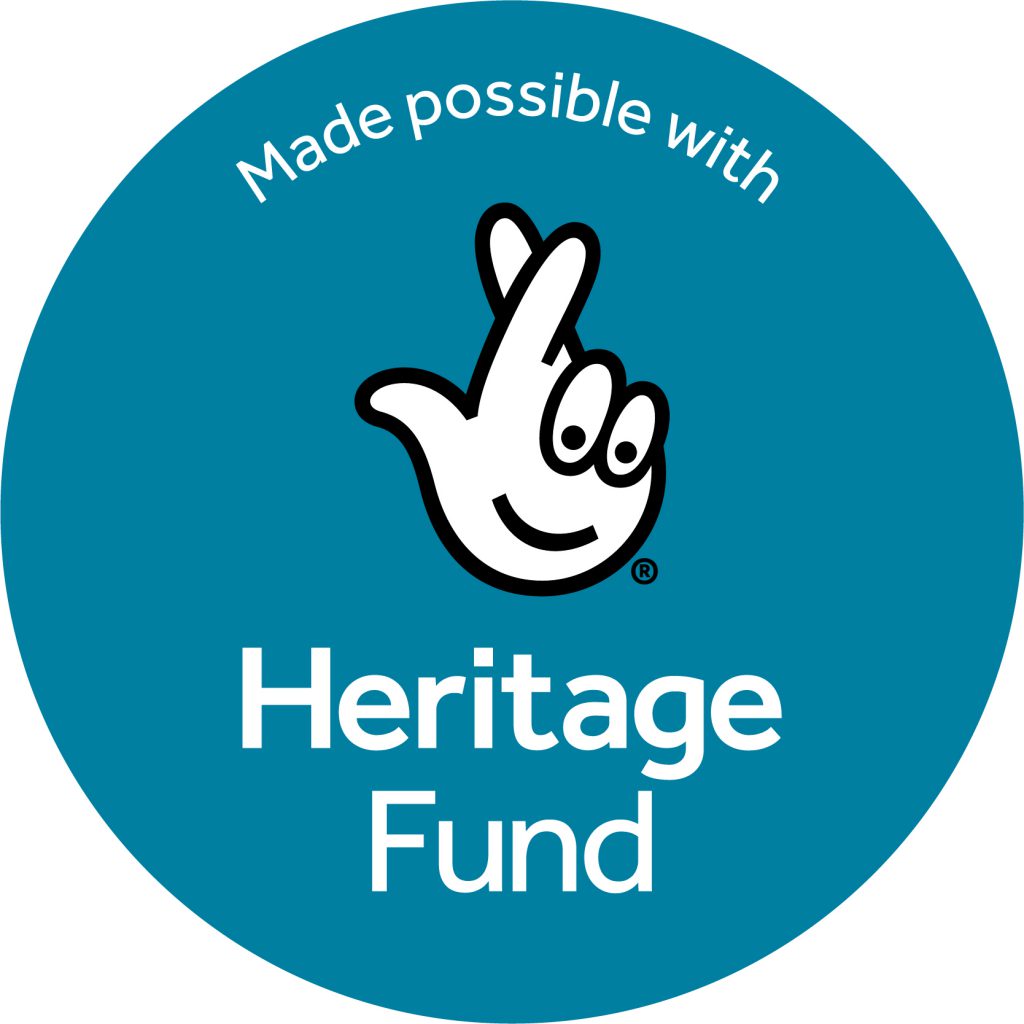North East Nature Archive, Sue Vaughan, reflects on her discovery of Kathleen Barrett’s vivid nature journals.

Kathleen Barratt was born in Liverpool in 1911. Her early childhood would have been impacted by the First World War, and by the time she left university she would have witnessed the effects of the Depression, the abdication of Edward VIII, and Britain’s declaration of war on Germany.
Kathleen studied literature at Kings College Newcastle, now Newcastle University, and became a lecturer at Northern Counties Training College. In 1960 she attended an adult education course about the birdlife of the North East; this inspired her to take regular weekly walks across Northumberland and further afield, making a meticulous record of the birds she heard and saw.
After her death in 2003 her executors offered NHSN 35 of her handwritten diaries, which are now kept in the NHSN”s North East Nature Archive. I first encountered Kathleen through these diaries, when I began volunteering at NHSN in 2023. I was given an archive box and asked to look through the contents, list what and where Kathleen visited and what she saw on her walks.
What I discovered when I opened the box was no mere list of birds, but a record over a thirty-year period of weather, walking routes, and the idiosyncrasies of bus transport – including the fact the buses were full of cigarette smoke. She described the people she met and gave her personal view of life in the North East of England during a time of political and industrial change and discontent, as well as major changes in thinking about landscape.

Hat landscape was itself changing, and much of it seems unrecognisable today. In 1971, for example, Kathleen described the state of the Ouseburn as being turbid, and as smelly as ever. My memories of the Ouseburn at the time are similar.
She describes “huge disfiguring heaps of open-cast mining encroaching still further into the fields north of Widdrington” This area has now been reclaimed, has a nature reserve, and is incoporated into the England Coastal Path encouraging people to get outdoors and explore nature.
Kathleen’s diaries also record the 1972 miners’ strike – a major dispute over pay between the National Union of Mineworkers (NUM) and the Conservative government of Edward Heath. Miners’ wages had not kept pace with those of other industrial workers since 1960.
On one of her bus journeys returning from a walk, she describes “parts of Ashington [that] seemed to be enduring a power cut (miners’ strike) … saw a branch of Broughs with candles on display shelves at dim intervals.”

Kathleen, a Quaker, often came across the hunt on her walks. In 1974, on a walk from Morpeth to Mitford, she wrote that she had been trying to observe birds – an activity that requires a certain amount of quiet – when “the hunt was out along the road which did not help. Its leaders hailed me as if they thought everyone loved them.” She was obviously not a fan!
Reading these notebooks, I found I could relate to Kathleen. I have spent much of my life walking in Northumberland; it is a place I love, which is why her story resonates so much with me. Walking and observing gives me space and time to think, to look and listen. I wondered why Kathleen walked, on her own, what she thought and experienced. Certainly life has changed in the years since the diaries were written, in many cases for the better: we have nature reserves, people are not allowed to smoke on buses, and hopefully the Ouseburn will continue to become cleaner.
NHSN’s North East Nature Archive is much like an Aladdin’s cave, full of books, paintings, maps, diaries, strange objects, and stories of the people of the North East, all waiting to be discovered. If you’d like to understand more about the region’s social and natural history, it’s an invaluable resource -perhaps you, too, might find stories that speak to you as Kathleen Barrett did to me?
Our current project ‘Nature’s Cure in Times of Need’ aims to grow this incredible archive by collecting and preserving the connections that people and communities across the region have with nature today. Generously supported by the National Lottery Heritage Fund and NHSN Members, we’re working to build a new collection of stories, pictures and recordings, that can help us explore the meanings, memories and feelings we attach to the natural world around us. We are keen to welcome new voices to the North East Nature Archive.
Whatever your story and however you want to tell it, please do share it with us here – or come to one of our events! Your story will be preserved for future generations, and could inspire others to connect with and help protect nature in the North East.
